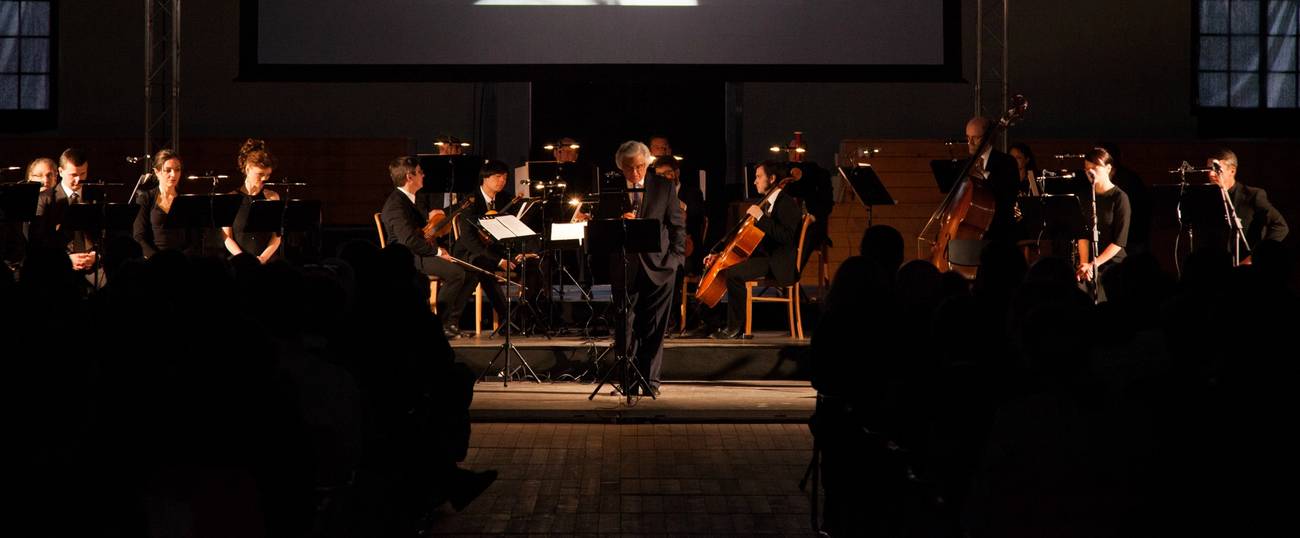The Symphony at Terezín
Near the former Theresienstadt concentration camp in the Czech Republic, a 13-piece orchestra played music composed by prisoners during the Holocaust




Stepping into Terezín—a former military compound in the Czech Republic where the Theresienstadt concentration camp was located—feels like being swallowed. The heavy stone gates of the star-shaped fortress built in the days of Joseph II gape ominously, thanks to its tragic history in World War II and decades more as a prison. Indeed, it was here that Gavrilo Princip, who ignited World War I with a few bullets in Sarajevo, succumbed to tubercular agony four years later. But that was nothing compared to the pain to come. “Suddenly my path ends right there by the bastion,” said Ilse Weber, an inmate and poet of Theresienstadt during World War II. In her song “Wandering through Theresienstadt,” she paces the short, regimented streets of the ghetto, reaching the guarded gates and asking, “When will our suffering end? When shall we again be free?” She was killed on October 4, 1944 at Auschwitz.
My own wanderings took me to Terezín on May 21, during the annual re-dedication of the national cemetery. While dignitaries placed wreaths and bowed to the memorials outside, I followed Weber’s footsteps through the uncomfortably quiet former ghetto, seemingly overgrown with the souls of the murdered. The dark spell broke only outside the doors of the Municipal Riding School, where the 13-piece orchestra of Defiant Requiem put the final touches on Hours of Freedom: The Story of the Terezín Composer, a song cycle of 18 works written in the camp by 15 composers imprisoned there.
When the doors opened at 2 p.m., the mood turned more uplifting as about 50 people filed in to the cavernous hall built to train Habsburg horsemen of yore. New to Terezín and its story, I was admittedly astounded by the idea of creating (or even viewing) any art in such conditions, a sentiment shared by survivor Zdenka Fantlová at the start of the performance. In a film clip projected above the orchestra she said: “People asked [Austrian composer] Viktor Ullmann, ‘How can you compose music in a place where 200 people are dying a day?’ ” The answer was simple for Ullman, who died at Auschwitz on October 18, 1944. “For me, composing music is like struggling for life,” he said. “I have to. This is fighting for life.”
The 18 surviving fragments of music created by Ullmann and fellow composers like Gideon Klein, Pavel Haas, Rudolf Karel—which were often passed between them, sometimes at the last moment—were cleverly collected into nine chapters: “Longing,” “Hope,” “The Messenger,” “Fate,” “The Eyewitness,” “Pure Entertainment,” “The Broken Heart,” “Censorship,” and “in Memoriam.” Each chapter included 1-3 solos, duets, trios, or quartets (representing classical instrumental, opera, cabaret, and folk), documentary footage, supporting text, and live narration in Czech and English. It was an effective combination, as the performance allowed each piece to breathe on its own and not overwhelm with intensity.
Admittedly, with the earth of Terezín under my feet, it was difficult to separate the music from the context, echoing criticisms against such performances of “Holocaust music.” The orchestra’s pianist, Phillip Silver, pushed back on this. “It is difficult, if not impossible,” he explains, “to decontextualize the composer from the experience. No one has any difficulty discussing Beethoven’s music in the context of his deafness.” If anything, he thinks, the context magnifies the unique qualities of the music. “If one could hypothetically remove the context and background of these works, that uniqueness would remain,” said Silver.
For me, the concert demonstrated once more that in the darkest conditions, it is music and art that light the brightest lights. And I hoped, as Weber’s song echoed in my mind during my own escape from Terezín, that, thanks to the performance, her journey no longer ends at the bastion.
Mike Dunphy is a writer and editor based in Prague. His articles have been published by CNN, USA Today, Travel Weekly, Metro, and The Huffington Post, among many others. He is also a writing instructor at Gotham Writers Workshop.